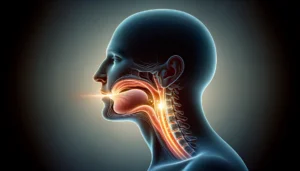Prescription drug abuse and addiction have become a growing issue in many parts of the world, including the United States.
With prescription drug addiction, the patient can often miss the typical warning signs of addiction. Part of this is due to the trust they have in the medicine and the doctor prescribing the medicine. Since the medicine is being prescribed, the patient may not consider the possible addictive nature of the drug.
This is something that may happen with the popular prescription medicine known as Ambien (zolpidem). Ambien is typically used to treat insomnia and sleep disorders.
However, extended use of the drug or abuse of Ambien can lead to an increased tolerance and dependency.
Below, we’ll explain the symptoms of Ambien addiction as well as the signs of addiction to prescription drugs. We’ll also cover treatment methods to help those who have become dependent on the Ambien.
Ambien Addiction: Signs & Symptoms
Ambien belongs to a class of drugs known as sedative-hypnotics. Ambien is usually prescribed for insomnia and other sleep disturbances.
Ambien was originally designed to replace other drugs used for insomnia, such as benzodiazepines, which can be highly addictive, even when used as prescribed.
While Ambien does typically appear to be less addictive than benzodiazepines, there is still a risk of psychological and physical dependency after regular use or abuse.
One of the main drivers of dependence on Ambien is that users often build a tolerance to the drug rather quickly. This requires higher doses to get the same effect. Sometimes, those higher doses can create a “high” for patients instead of the intended groggy or sleepy feeling.
Addiction to Ambien can sometimes be difficult to notice, but below are some common warning signs patients and family members should be aware of.
- Combining Ambien with other drugs (including alcohol)
- Buying Ambien on the street or from friends
- Doctor shopping to obtain new prescriptions
- Driving or doing other activities while taking Ambien
- Using Ambien daily
- Withdrawal symptoms when attempting to quit
- Taking more than your prescription recommends
- Strong cravings when quitting
- Inability to reduce dosage
While these symptoms are specific to Ambien, they are similar to symptoms of addiction to prescription drugs of any kind.
Ambien Withdrawal
Similar to other addictive substances, Ambien can cause withdrawal symptoms when patients try to quit or reduce their intake of the drug.
Severe withdrawal symptoms generally begin within 24 hours to 48 hours after the last dose of the drug.
Withdrawal from Ambien can also be dangerous as there have been isolated reports of seizures when long-term users try to quit. This is believed to be similar to the effect seen in benzodiazepine withdrawal, although less common.
Although seizures would be the most serious withdrawal symptom, there can be many others that make it difficult for the patient to quit or reduce their Ambien intake on their own.
Ambien withdrawal can include:
- Anxiety
- Panic attacks
- Increased metabolic functions (heart rate, breathing, etc)
- Insomnia or other sleep disturbances
- Hallucinations
- Delirium
- Tremors
- Irritability
- Fatigue
- Nausea
Some of these Ambien addiction and withdrawal symptoms can be serious and it’s one of the reasons that patients who believe they are dependent on Ambien should seek professional care.
Those who are abusing the drug and cannot quit on their own will need to undergo a supervised detoxification process, similar to other addiction treatments.
During this detoxification phase, the patient can be monitored to ensure their health and well-being are managed to reduce the risk of any complications or additional discomfort.
Treatment For Ambien Addiction
Ambien addiction treatment will generally begin with an assessment by a qualified addiction specialist. Based on the patient’s history with Ambien and any other substance abuse, they can determine a treatment plan that will offer the highest chance of success.
Treatment for Ambien addiction will start with detoxification. This is when the patient stops using the drug and allows their system to return closer to a baseline state.
In some cases, other medications may be used during this detoxification if deemed necessary for the patient’s overall health or comfort level.
Generally, the detoxification can last up to two weeks for the full withdrawal symptoms to subside. However, the first 1-5 days generally present the most severe symptoms with a reduction after that.
The length of time using Ambien and the daily dosage will have an impact on the severity of withdrawal symptoms. A patient’s age can also play a role as older patients tend to experience more severe withdrawal symptoms.
Due to the risk of seizures and other possible withdrawal symptoms, those with a long history of Ambien abuse or addiction should not try to quit completely without consulting with a medical professional first.
Outpatient Addiction Treatment For Ambien
After the detoxification phase, patients will move into the therapy portion of their treatment. For most patients, they will choose an outpatient program due to its flexibility and lower costs.
Outpatient treatment for Ambien addiction will involve therapy to help the patient learn which behaviors and attitudes led to their addictive behavior. They will then learn techniques to help them manage those behaviors and replace them with more positive actions.
Outpatient treatment usually begins with a more intensive therapy schedule that tapers off as the patient makes progress toward recovery.
With outpatient care, patients can leave after the therapy sessions and maintain their obligations outside of therapy.
To help with scheduling, many treatment centers offer night or weekend sessions.
Inpatient Treatment For Ambien Addiction
In some cases, inpatient treatment can be used to treat Ambien Addiction. Inpatient care is generally more intensive than outpatient care. It is also more expensive and less flexible.
However, in some cases it can be necessary based on the patient’s history of abuse or if there are serious underlying physical and mental health conditions present along with the Ambien abuse.
Help And Treatment For Ambien Addiction
If you think you may have an addiction to Ambien or other prescription drugs, help is available.
At Ocean State Recovery, we specialize in providing flexible outpatient treatment options for those suffering from addiction to prescription drugs, including Ambien.
Our staff can help you determine your treatment options and the best course of action to help you safely quit prescription drugs and return to the life you deserve.
Contact Ocean State Recovery to learn more about our treatment options for Ambien addiction and other prescription drugs.
Sources:
https://www.ncbi.nlm.nih.gov/pmc/articles/PMC8559642/
https://www.mayoclinic.org/diseases-conditions/prescription-drug-abuse/symptoms-causes/syc-20376813





